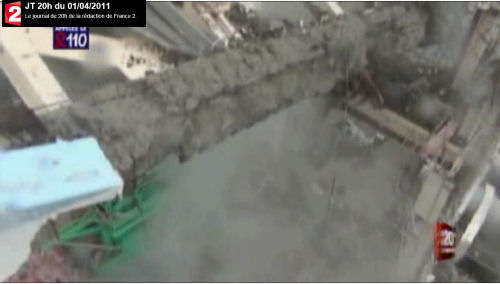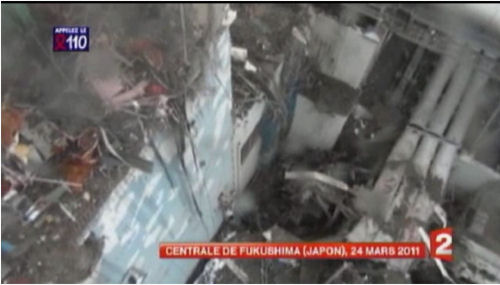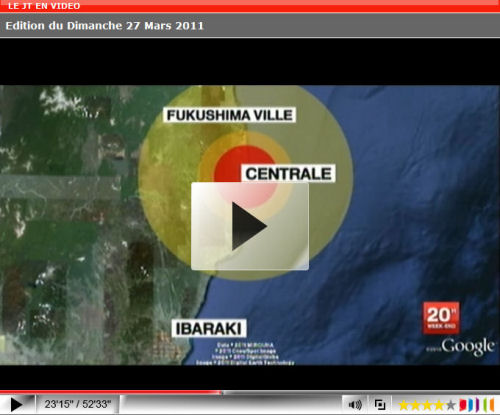 Big capitalism and the population growth lobby force people to live in dangerously risky conditions which by tradition they used to avoid. Only by returning power to the citizens via local and regional governments can we stop the population growth and the constant increase in accidents, corruption and diminished quality of life. To return power to local citizens, we need better laws to stop media ownership residing in so very few hands and being allowed to be the default 'information' conduite for government and the principle means of publicising candidates for election.
Big capitalism and the population growth lobby force people to live in dangerously risky conditions which by tradition they used to avoid. Only by returning power to the citizens via local and regional governments can we stop the population growth and the constant increase in accidents, corruption and diminished quality of life. To return power to local citizens, we need better laws to stop media ownership residing in so very few hands and being allowed to be the default 'information' conduite for government and the principle means of publicising candidates for election.

Japan
Tony Boy's rolling update on the nuclear disaster in Japan is highly informative and stimulating because it continually raises very topical issues about the consequences of overpopulation and big scale market capitalism. Yesterday he wrote about how laws existed in Japan against building on tsunami-prone coastal areas in the 1930s, but how, probably in the 1950s, these laws were changed.
1950s confusion of cause and effect
It is typical that in the 1950s, a time of massive supplies of cheap fossil fuel and turbo-charged population growth, now falsely associated with durable democracy by growth economists and foreign aid proponents, peoples' rights to self-government were sacrificed.
Queensland, Australia
How similar to the situation in Queensland today, where a backward, growth-obsessed government not only allowed building on flood plains, but advertised for more and more people to come and live in this dangerously situated city. (See "Queensland Floods 2011.")
Without local self-government, no democracy
In a real democracy where the scale of the economy permits local populations to adjust in advance to conditions and risks, laws and projects will be responsive to local conditions. Where laws and projects are conceptualised and pushed by capital from distant places, common sense and democratic objections will be overwhelmed in a system that actually leaves people open to natural disasters. See, for instance, "Prof Robin Batterham - Australia should buy farms in Mozambique." Adding insult to injury, the same system will demand that the citizens compensate big business for its own mistakes as well as forfeit their lives and possessions. Also, due to the distorting nature of market capitalism, disaster can be turned into a profit making industry - the insurance industry. If governments compensated tax-payers for natural and man-made disasters, we could be sure that buildings would not be put on flood plains and that nuclear power plants would be rare power-sources and not placed near population centers.
Tradition, collective memory, local knowledge, value of elderly people
The cause of these problems is the scale of government and profit in capitalist economies that have grown beyond local and regional control and feedback. As Tony Boys has written, "a large part of the destruction, and the nuclear disaster, could have been avoided if the collective memory had remained intact."
Market-based capitalism always over-rides commonsense
The problem is that capitalism, by prioritising the market over the needs of citizens, will always over-ride common sense, courtesy and safety. Local knowledge, which often resides in elderly people, suffers through the deliberate diminishing of the status of the elderly in our shallow 'modern' capitalist societies. The mainstream press, as well as being a vehicle for all kinds of market-weighted information distortions, undermines the huge importance of local memory and old people. Old people, who can remember how things were offer a significant curb to media and politicians which find real information inconvenient. See for instance, "Should Jeannie Pratt and Elisabeth Murdoch downsize to high rises in Activity Centers to give young people more room?"
Growth Lobby demand for obviously unsustainable population
We can see this in the Australian growth lobby's demand for Australia to have an obviously unsustainable population. A hallmark of this lobby is its distortion of facts regarding dependency ratios, plus its disrespect and callousness towards elderly people.
Victorian Premier, Ted Baillieu's statement "Interstate raiders buying up Melbourne properties," by Simon Johanson, David Rood, Jason Dowling, The Age, April 2, 2011, was typical of this dangerously subservient attitude to the market.
Premier Ted Baillieu said he would never ''put up the stop sign'' to curb population growth. He warned that Victorians will have to ''endure'' the problems of growth. This attitude is completely irresponsible, first in terms of putting the interests of outside investors ahead of the people he was elected to represent and, second, in snubbing his nose at the adverse impact of increasing population on environmental issues.
Population growth and capitalism are co-malignancies.
These sort of elite behaviours are indicative of the working contempt for democracy and quality of life within such systems. The only ideas that get up are those which focus money-aggregation in the short term. Population growth and capitalism are co-malignancies. The push for nuclear to maintain and increase huge undemocratic populations is a product of these unwieldy self-perpetuating systems. As the supply of cheap petroleum runs down, nuclear at any price is being pushed.
The bottom line is actually that humans are capable of allowing their populations to wind down naturally, as long as the remain in control of information, land and government. (See Sheila Newman, The Urge to Disperse(2011) If they are distributed in large artificial cities like animals in intensive farms they have no real autonomy or links to significant traditions and information on which to base building, immigration, and family-size decisions. For instance, left to themselves, Australians were on course to allow their population to diminish. But nasty elites, persuaded by a 'financial' bottom line, which is anything but realistic, have demanded and forced the country to take more and more immigrants. This is a terrible interference in peoples' rights, safety, democracy and security.
What Tony Boys wrote
Look for "Tokyo Newspaper, p.20" in
Tony's rolling update no. 2, here: but I am citing it below anyway:
"An article on p.20 mentions that a) tsunami in the Tokai region in 1498 reached a height of 15 m and killed 50,000 people at a time when Japan's population totalled only about 12 million, and that b) this is far larger than current assumptions concerning possible tsunami disasters. A second article on p.20 mentions that after the Showa Sanriku earthquake in 1933, Miyagi Prefecture issued regulations including fines or imprisonment clauses prohibiting construction (of homes and so on) in coastal areas likely to be affected by tsunamis. The regulations appear to have been rescinded in the 1950s, when the national Building Standards Law was introduced. Over three thousand people lost their lives in the 1933 earthquake and tsunami. An article I missed in the yesterday's (April 6) Akahata (p.14) describes a book published in 1995 by former public school teacher Mr Yugi Iinuma on the history of the dangers of living in the flat coastal area of Sendai City, Miyagi Prefecture. A picture in the article shows the former teacher, now 80, holding the book at an evacuation center in Miyagino Ward, Sendai City. Mr Iinuma's house was destroyed in the tsunami, but he managed to escape in the time between the earthquake and the arrival of the tsunami. It would seem that people forget about the dangers of tsunamis over time. It's sad to see how a large part of the destruction, and the nuclear disaster, could have been avoided if the collective memory had remained intact."
The unreality of Japan's 2011 disasters
Of course, when I say how stimulating and interesting Tony Boy's articles on the Japanese disaster are, there is an unreal sense of irony because Tony really is living through 'interesting times' and the impetus that started him writing about this was a desire to understand the threats implied to his own life as well as a desire to stop nuclear power development. Although many people in Japan have lost their lives to earthquake and tsunami, an unknown number have lost their lives to the current nuclear disaster with another unknown number of future victims. It requires concentration to work out the true nature and severity of the nuclear power aspect of this continuing disaster. This difficulty is increased by the unreal attitude of most media resources who have begun to report the whole matter vaguely, as if in a dream. It is obvious that they are not up to the technological demands of reporting but even more than this; they are succumbing to spin that says, "Disaster and suffering are inevitable. We have to put the market first and the market has to grow so the danger has to grow." (Note that French media sources are more technologically able on the subject of nuclear, but the label (and some reality) of "Green hysteria" is being used to alienate environmental protest and the result of this is diminishing reporting of events in Japan even there.)
Arnie Gunderson's videos
If you want some really critical and easy to understand, fascinating examinations, from a nuclear engineering standpoint, have a look at Arnie Gunderson's "Fukushima Updates". Beautifully short and precise, they come from a techno-legal field and seem to be far ahead of anything you will see in the mainstream or popular 'green' media.


 As an introduction, here is a translation of an article in Japanese from
As an introduction, here is a translation of an article in Japanese from  Big capitalism and the population growth lobby force people to live in dangerously risky conditions which by tradition they used to avoid. Only by returning power to the citizens via local and regional governments can we stop the population growth and the constant increase in accidents, corruption and diminished quality of life. To return power to local citizens, we need better laws to stop media ownership residing in so very few hands and being allowed to be the default 'information' conduite for government and the principle means of publicising candidates for election.
Big capitalism and the population growth lobby force people to live in dangerously risky conditions which by tradition they used to avoid. Only by returning power to the citizens via local and regional governments can we stop the population growth and the constant increase in accidents, corruption and diminished quality of life. To return power to local citizens, we need better laws to stop media ownership residing in so very few hands and being allowed to be the default 'information' conduite for government and the principle means of publicising candidates for election.






Recent comments